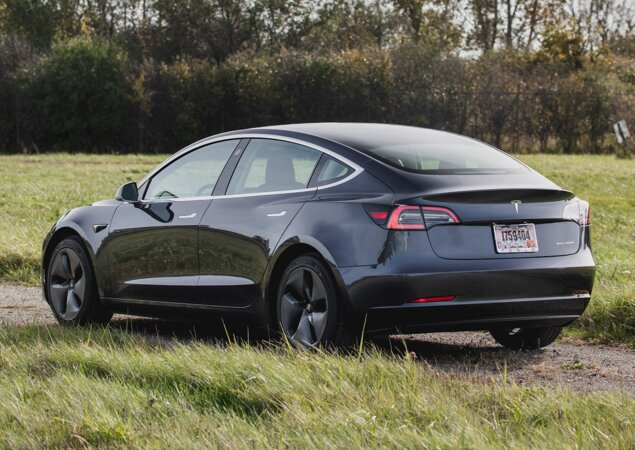In recent years, Brazil has emerged as a surprising leader in the electric vehicle (EV) revolution. As of 2023, Brazil is not only the largest automotive market in South America but also rapidly becoming a hub for green transportation. According to Bloomberg Green, the country’s EV sales surged by an impressive 40% year-on-year, reflecting a growing consumer appetite for sustainable alternatives. In this article, we will explore how Brazil’s EV market is shaping the future of green transportation, the challenges it faces, and what this means for global mobility trends.
The Rise of Electric Vehicles in Brazil
Government Initiatives and Policies
The Brazilian government has been proactive in encouraging the adoption of electric vehicles through a series of initiatives and policies. For instance, they have implemented tax incentives for EV buyers and have been investing in charging infrastructure across major cities. These moves are part of Brazil’s broader commitment to reducing carbon emissions by 43% by 2030, as reported by Reuters Mobility.
- Tax Incentives: Reduction in import tariffs for EVs.
- Infrastructure Investment: Over 1,000 new charging stations planned by 2025.
- Public Awareness Campaigns: Efforts to educate consumers about the benefits of EVs.
Local Manufacturing Boom
Brazil’s automotive industry is undergoing a significant transformation. Major automakers like Volkswagen and Ford are investing heavily in local manufacturing plants dedicated to EV production. InsideEVs reports that Volkswagen plans to produce up to 200,000 EV units annually in Brazil by 2025. This local manufacturing boom not only boosts the economy but also reduces the carbon footprint associated with vehicle imports.
- Volkswagen: Aims for 200,000 units annually.
- Ford: Investing in EV-specific production lines.
- BYD: Expanding battery production facilities.
Challenges Facing Brazil’s EV Market
Infrastructure Development
While Brazil is making strides in EV adoption, infrastructure development remains a challenge. According to Electrek, the country’s charging network is still in its infancy, with most stations concentrated in urban areas. This presents a hurdle for EV adoption in rural regions, where long-distance travel is common.
- Current Stations: Predominantly in São Paulo and Rio de Janeiro.
- Rural Accessibility: Limited charging options outside major cities.
- Solutions: Government and private sector collaboration is essential to expand network coverage.
Battery Technology and Costs
Battery technology is another critical factor influencing Brazil’s EV market. The high cost of lithium-ion batteries contributes to the overall price of electric cars, making them less accessible to average consumers. However, developments in solid-state battery technology, as highlighted by Battery University, promise to reduce costs and increase efficiency.
- Current Technology: Lithium-ion batteries dominate.
- Emerging Solutions: Solid-state batteries could lower costs.
- Research & Development: Increased investment in local R&D.
Practical Guide for Brazilian EV Buyers
How to Charge Your EV
For Brazilian consumers looking to purchase an EV, understanding the charging process is crucial. Here are some tips:
- Home Charging: Install a Level 2 charger for faster home charging.
- Public Charging: Utilize apps like PlugShare to find nearby stations.
- Fast Charging Options: Available at select locations like shopping malls.
Where to Buy
When considering an EV purchase in Brazil, consumers have several options:
- Dealerships: Brands like Nissan and Hyundai offer EV models.
- Online Platforms: Websites like WebMotors provide listings for new and used EVs.
- Comparison Shopping: Compare prices and features to find the best deal.
What to Compare
When selecting an EV, consider the following factors:
- Range: The distance the vehicle can travel on a single charge.
- Battery Life: Warranty and expected lifespan of the battery.
- Features: Advanced safety and autonomous driving features.
Conclusion: A Bright Future for Green Transportation
In conclusion, Brazil’s electric vehicle market is poised to play a pivotal role in the global transition towards sustainable transportation. While challenges remain, particularly in infrastructure and battery technology, the government’s proactive policies and the increasing involvement of major automakers paint a promising picture. As Brazil continues to embrace electric vehicles, it sets an inspiring example for other emerging markets.
As a reader, are you ready to join the green transportation revolution? Consider the benefits of switching to an electric vehicle and how it can contribute to a cleaner, more sustainable future. With the right investments and innovations, Brazil is not just shaping its transportation landscape but is also paving the way for a greener planet. Stay tuned as we keep you updated on the latest trends and breakthroughs in the EV world.

